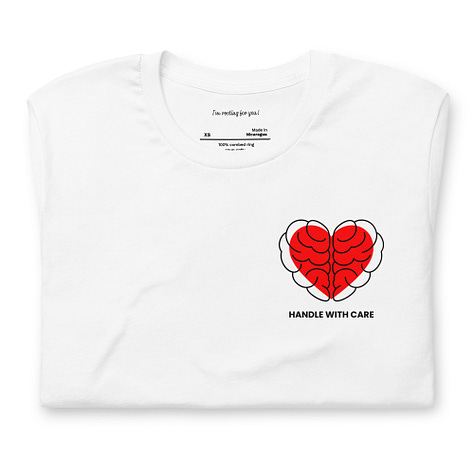Drowning in Sunshine: How Toxic Positivity Silences Real Struggles
Why It's Okay to Feel Bad and How Honesty Heals

There’s a fine line between optimism and straight-up ignoring reality, and we cross it more often than we’d like to admit. Somewhere along the way, we turned "good vibes only" into a rule, as if feeling anything other than happy means we’re doing life wrong. Toxic positivity—the idea that we should always look on the bright side, no matter what—has crept into our conversations, social media feeds, and even the way we talk to ourselves. And while a hopeful perspective is great, constantly forcing positivity can actually do more harm than good.
I know because I’ve been on the receiving end of it. I once opened up to a friend about feeling completely burned out, only to be met with, “Just be grateful you have a job.” And yeah, I was grateful. But that didn’t mean I wasn’t struggling. What I really needed in that moment wasn’t a reminder to count my blessings—I needed someone to hear me, to validate that I was exhausted and overwhelmed.
The problem with toxic positivity is that it shuts down real emotions under the guise of encouragement. It tells us that our pain is inconvenient, that we should stuff it down and replace it with forced gratitude. And when we start believing that, we end up gaslighting ourselves. We feel guilty for feeling sad. We beat ourselves up for struggling. We minimize our own experiences because, after all, "someone always has it worse."
But here’s the thing: emotions aren’t the enemy. Sadness, frustration, and anger—they’re not roadblocks to happiness; they’re just part of being human. When we let ourselves feel what we need to feel, we actually build resilience. Avoiding tough emotions doesn’t make them go away—it just buries them, only for them to resurface later as stress, burnout, or anxiety.
So what’s the alternative? Emotional honesty. Making space for both gratitude and grief, for joy and frustration, for hope and disappointment. It’s about balance. We can appreciate the good without ignoring the hard. We can try to grow without pretending we’re not struggling. Real emotional well-being comes from acknowledging what’s real, not faking happiness.
Instead of telling someone to “just be positive,” what if we said, “That sounds really hard—I’m here for you”? Instead of forcing ourselves to “cheer up,” what if we gave ourselves permission to sit with our feelings and actually process them? What if we recognized that real healing happens in honesty, not forced smiles?
Life is messy, and so are we. The goal isn’t to be happy all the time—it’s to be real. And that means letting ourselves, and each other, feel the full range of human emotions without shame.
If this piece resonates with you, and you’re craving a gentle way to reset, check out my Reset Printable. It’s a guided self-care tool designed to help you process your emotions in an honest and nurturing way. No toxic positivity—just real, compassionate support. You can grab it here: Feeling Off? This Gentle Self-Care Reset.
💡 Check out my Etsy shop, Mental Nesting! Thoughtfully designed mental health-inspired mugs, tees, and more to inspire self-care and connection. 👉 Visit here








"It tells us that our pain is inconvenient, that we should stuff it down and replace it with forced gratitude."
This!